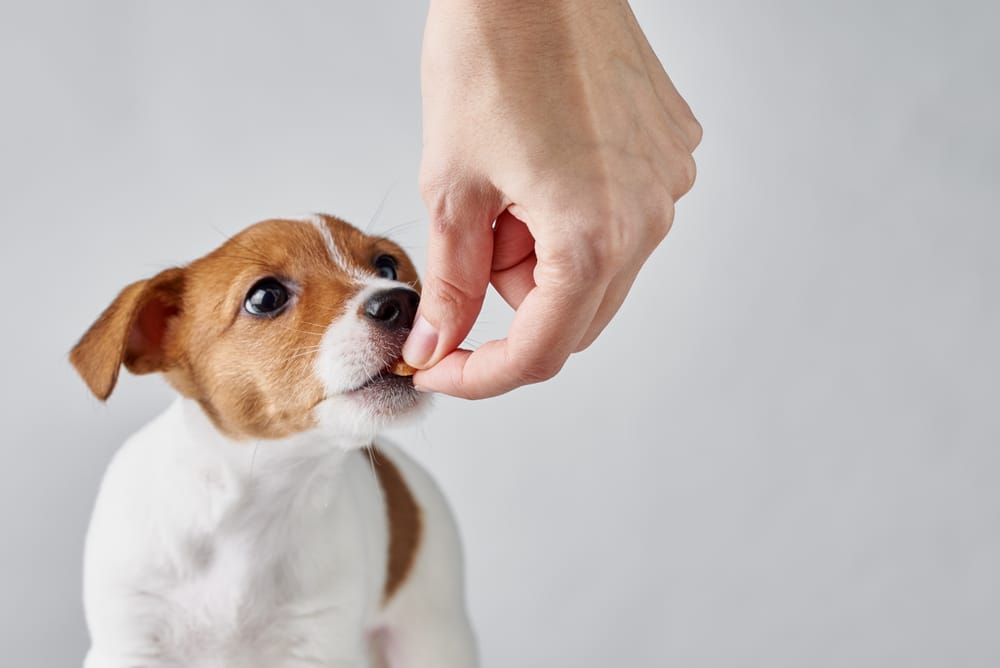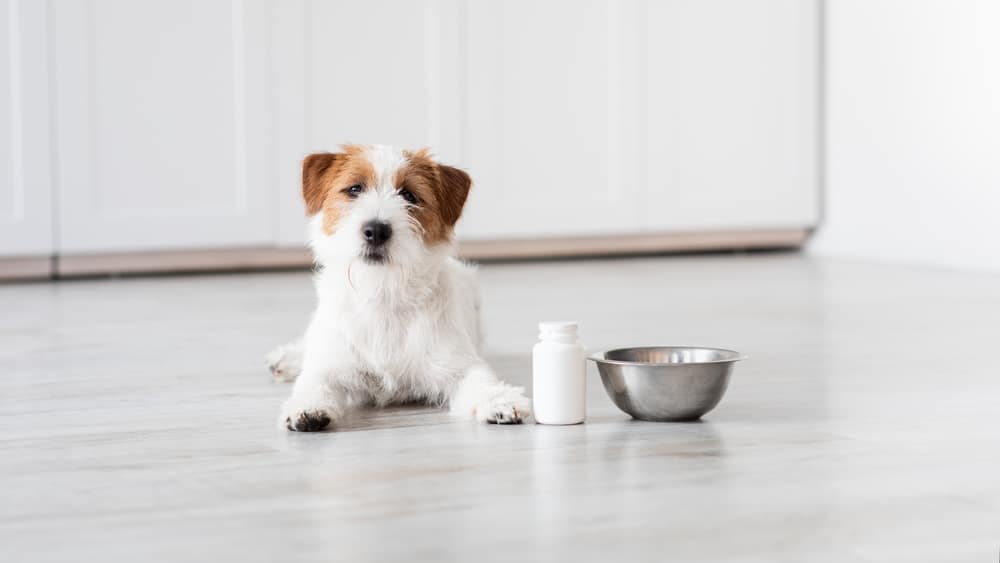Since we were young, our parents have told us that we need to eat a lot of fruit and vegetables if we want to be strong and healthy. For some of us, that stays true today as well. And just like us, dogs need vitamins in their diet to help them grow, develop, and stay healthy. That is why nowadays, there are a lot of companies that produce dog supplements, and all of them have pretty much the same purpose: to keep your dog healthy. But what vitamins do dogs need anyway?
Dogs need the same vitamins as humans, including vitamins C, B-complex, A, E, D, and K. All of these vitamins, together with minerals, are usually found in the food, regardless if it is commercial dry or wet food. Always consult with your vet prior to making any changes to your dog’s diet, though.
Table of Contents
What Are Vitamins And How Are They Classified?
Before we can talk about what vitamins your dog may need, let’s learn what the vitamins actually are, why they are important, and how they are classified.
Vitamins are chemical compounds that cannot be produced by the body and, when given in a certain amount, have a positive effect on a dog’s or human’s body. They perform different and specific biological functions.
Vitamins are classified into two groups: water-soluble and fat-soluble vitamins.
Water-Soluble Vitamins
In this group, we have vitamin C and the B-complex vitamins. They are transported through water and usually excreted in urine and cannot be stored like fat-soluble vitamins. This is why they need to be supplied on a regular basis.
Fat-Soluble Vitamins
These are vitamins that can be stored in the fatty tissue and released slowly. They include vitamins D, A, E, and K.
What Do Different Vitamins Do?

Each vitamin has its purpose in the body, and together they help your dog stay healthy and live a longer life. In this section, we will talk about what the different vitamins do and where your dog can get them.
Vitamin C
This vitamin shows great antioxidant properties, which helps remove the free harmful radicals from the system. It also plays a role in reducing inflammation in the body.
If you are looking to incorporate more vitamin C, you can consider giving your dog some pumpkin, kale, sweet potato, or blueberries.
Vitamins From The B Group
Several vitamins are part of the B group: B6, B12, riboflavin, thiamine, folic acid, pantothenic acid, and niacin. All of them can benefit your dog in different ways. For example:
- B12, riboflavin, and niacin help with enzyme function
- B6 helps the immune system, hormonal balance, and glucose metabolism
- Pantothenic acid has an effect on energy metabolism
- Thiamine helps with energy metabolism and the metabolism of carbohydrates
- Folic acid has an important role on a cellular level, especially in the work of the mitochondria
The vitamins from the B-complex can be found in eggs, milk, beef liver, fish, or oats.
Vitamin A
We all remember when moms used to make us eat carrots so we would have good eyesight, right? The same goes for dogs too! But vitamin A also helps in pregnant bitches with fetal development and better cell function.
Vitamin A can be found in carrots, broccoli, and milk.
Vitamin D
We all have heard about vitamin D because it is connected to bones. This vitamin helps in the metabolism of phosphorus and calcium in the dog’s body, which has an important role in helping your puppy grow strong and healthy bones.
Vitamin D can be found in egg yolks, fish, and liver.
Vitamin K
This vitamin is an important vitamin that helps with clotting activation in the body. This means that if your dog does not have enough vitamin K in their system if they get a cut, the body won’t be able to stop the bleeding.
Dogs can get vitamin K from cabbage, Brussels sprouts, or broccoli.
Vitamin E
This is another vitamin that has anti-oxidative properties, but it also helps with fat metabolism. Dogs that do not have enough vitamin E can show signs of reproductive problems and muscle atrophy.
Vitamin E can be found in fish such as salmon and trout, eggs, and spinach.
Conclusion: What Vitamins Do Dogs Need?
Vitamins are important, which is why you should always consult your vet about how to make sure your dog has all of them. Keep in mind that we strongly recommend you talk to a professional before considering giving your dog any supplements.
So, how do you plan to ensure your dog has the vitamins its needs? Let us know in the comments below!
